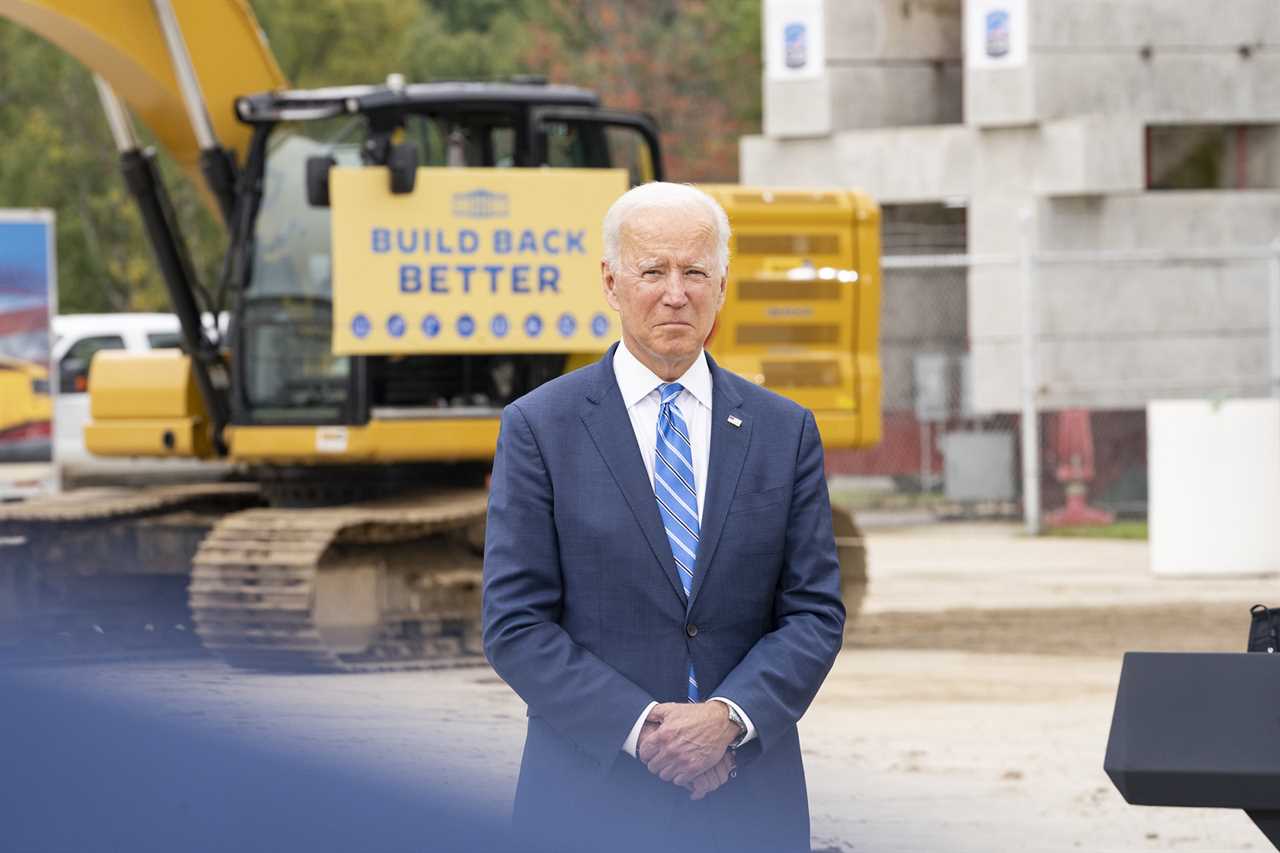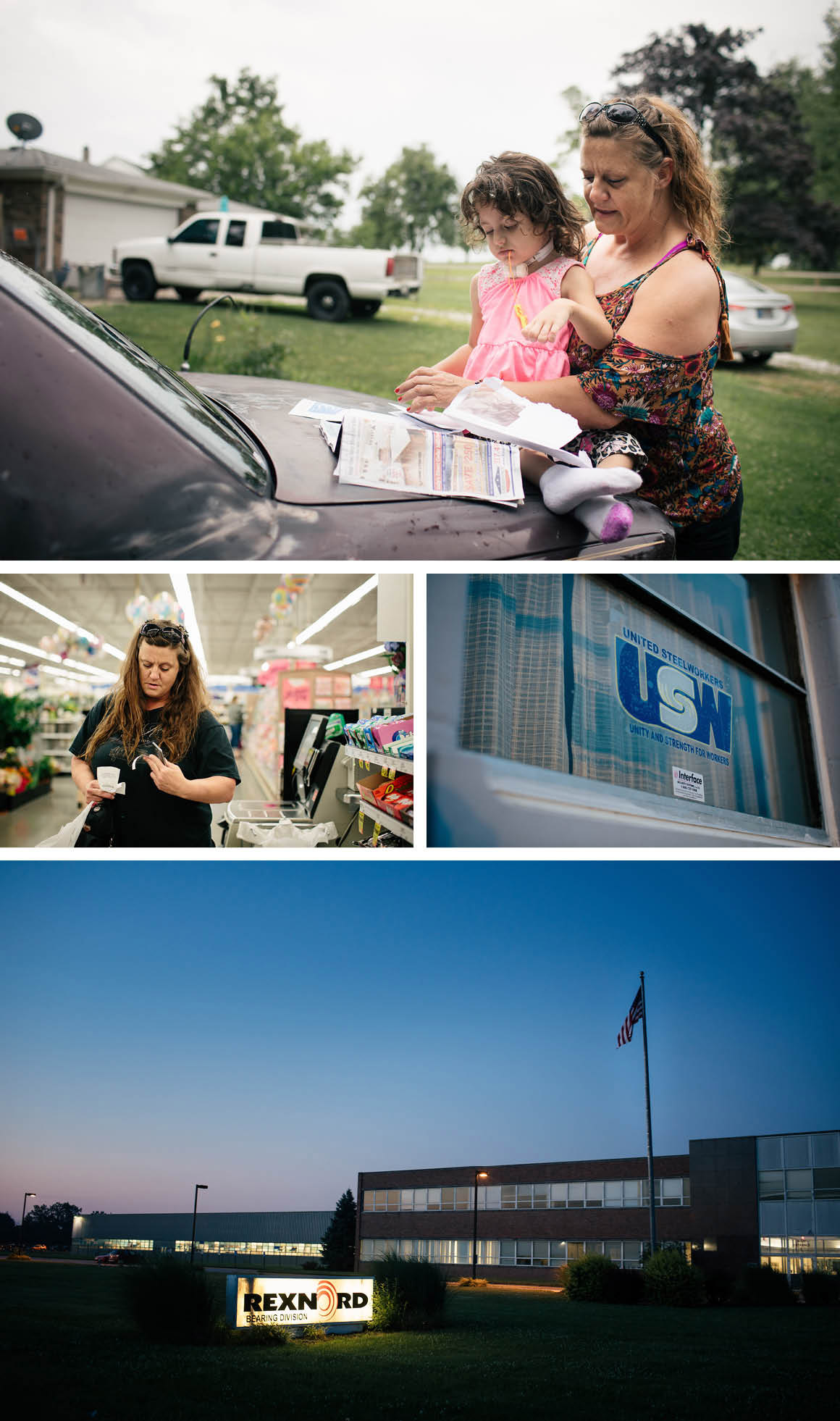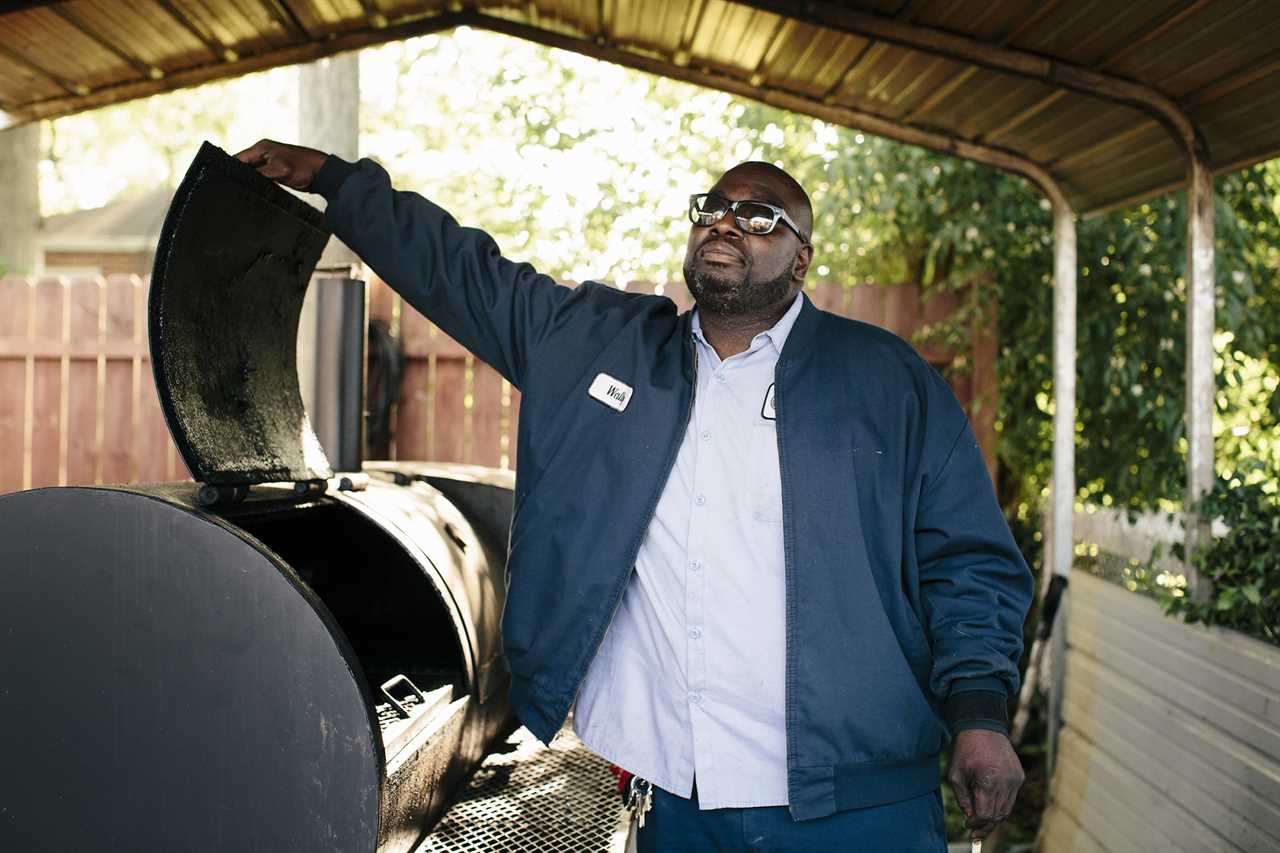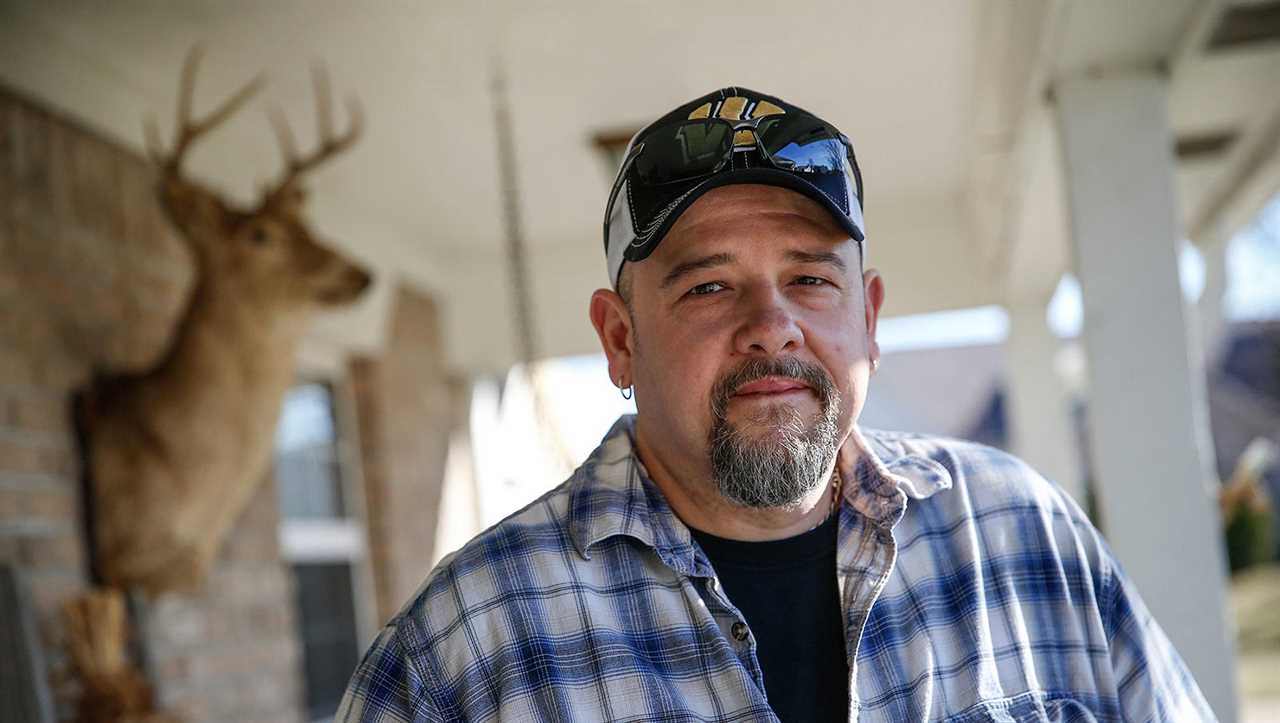
I knew the Democrats had a messaging problem the day I saw newspapers describe Joe Biden’s Build Back Better plan as a vast expansion of the social safety net. Safety nets are those cumbersome things that catch you when you stumble and fall. They’re important, but they are not the stuff of inspiration. Nobody wants to need a government check. Kids dream of growing up to be singers, nurses, firefighters and pilots — jobs that will give them dignity, purpose and a role in the world. I’ve never met a kid who dreamed of growing up to live off a government check.
Democrats need to get back to being the party of work, not the party of social safety nets. The good news is that Biden understands that. In early October he explained his infrastructure bill and Build Back Better agenda in a speech in Michigan that used the word “job” or “jobs” at least 19 times. Unfortunately, too many Democrats on Capitol Hill still talk more about safety nets than jobs.
In some ways, it’s a messaging problem. Democrats increasingly represent the party of college-educated Americans. Many have forgotten how to talk to blue-collar Americans, who make up two-thirds of adults in the country. For instance, “free college” is frequently cited as one of the best things in the Build Back Better bill. It would be wiser to talk about how the bill would increase pre-apprenticeships for people to get into the trades, a far more attractive aspect to blue-collar voters. In other ways, it reflects a deeper debate about what to do with blue-collar American workers whose jobs are increasingly being taken over by machines and workers from low-wage countries. Some cheerfully champion a post-work era that will require “universal basic income” to keep Americans afloat. But it should be no surprise that work is important to the working class. They don’t want handouts. They want jobs.
At its core, Biden’s Build Back Better agenda meets the moment. It’s not a safety net bill. It’s a way to get Americans back to work, to prepare them for 21st century jobs and to make sure that people who do work can make ends meet. Universal pre-K and quality child care will help parents return to the labor force after the pandemic. Boosting the pay of home health care workers will ensure that those who feed and bathe our aging parents and our veterans with disabilities aren’t living in poverty. Fighting climate change and preparing communities for extreme weather will create lots of blue-collar jobs — strengthening electrical grids, capping abandoned mines, building electric cars and electric car terminals that will make our country a global leader on that front.
In many ways, this agenda addresses the root of what has been ailing the country: the fading job prospects of blue-collar Americans in a global economy. For American adults who don’t have a four-year college degree, globalization and automation have made work less secure. Working-class Americans rebelled against globalization and elected Donald Trump, who promised to fix it by bringing the factories back, slapping tariffs on Chinese goods, kicking out undocumented immigrants who are working for low pay and getting rid of pesky regulations that make it more expensive to run a factory in the United States. He didn’t fix it, of course. But he is beloved by tens of millions of blue-collar voters for trying.
Biden, who actually grew up in a blue-collar family, has put together a plan that stands a chance of solving some of the most pressing problems that Trump railed about. But Democrats still struggle to communicate that in a meaningful way to blue-collar Americans.

I came to this view after I spent years following steelworkers from Indianapolis who’d lost their jobs when Rexnord, their bearing factory, moved to Mexico. Shannon Mulcahy, a white woman who became the first female heat treat operator at the plant, had tended the factory’s furnaces almost as tenderly as she’d cared for her own children. I followed Shannon as the plant shut down around her. I watched her agonize over whether she should train her Mexican replacements for a small bonus or stand with her union and refuse. She eventually trained a young Mexican man and ended up forging a friendship with him. When the training was over, he put his hand over his heart and tried to apologize.
“I’m not mad at you,” she told him. “I was blessed for a while. I hate to see it go. Now it’s your turn to be blessed.”
After I wrote Shannon’s story in the New York Times in 2017, readers from around the world asked me to update them on what had happened to her. I followed her for four years — the entirety of the Trump administration — to find out what would happen to her next. I also followed Wally Hall, a Black bearing assembler who had always dreamed of starting his own barbecue business, and John Feltner, a white machinist, who yearned to buy a new house to replace the one he’d lost after the first factory where he worked closed down a decade earlier.
My biggest takeaway from that experience was how much people get from their jobs, wholly apart from a paycheck. The job gave Shannon the confidence to leave a violent man. It gave Wally a chance to get his life back on track after a stint in prison. It gave John a chance to serve as a representative of the union and participate in politics.
Work was the cornerstone of their identities. They didn’t particularly trust the government and routinely referred to politicians from both parties as “crooks.” They certainly didn’t aspire to live off a government check. After the plant closed, Shannon felt humiliated when she was forced to buy groceries for the house with her son’s electronic benefits card. The old childhood shame of the food stamps her mother used came rushing back. Shannon missed the camaraderie of the factory and the comfort of somebody else telling her what to do with her time. She called up an old mentor from the plant and asked him half-jokingly, “Will you be my boss?”
My article brought Shannon a shocking stroke of good luck: A wealthy New York lawyer paid off her mortgage. For the first time in her life, she had money in the bank and nothing to do. She fell into a deep depression. She felt awful when her resume was rejected by a factory where her friend and cousin had gotten hired. It was as if they were at a party she hadn’t been invited to. She imagined them chumming it up on an assembly line.
“I got to quit feeling the way I’m feeling,” she told me.
I asked Shannon what she thought of “universal basic income” — the idea that the government might provide everyone with a check to meet some basic needs to make up for the jobs that had been automated or shipped overseas. She thought it would relieve some of the pressure on the unemployed. But she wondered what people would do all day long. Who would they talk to?
“I think that depression would go up,” she declared. Studies suggest unemployment can be detrimental to mental health. During the Covid-19 pandemic, workers in Britain who’d lost their jobs experienced mental disorders at far higher rates than those who remained employed. Meanwhile, workers who merely had their hours cut — but retained their jobs — fared just as well as those who still worked full time.
“In a nutshell, consistent with previous research, we found that reducing hours only had a slight or no impact on mental health, but losing a job had a large negative impact,” Brendan Burchell, one of the researchers, told me in an email. “In other words, paid work is important for mental health, but a low dose is fine.”

Of all the workers I got to know from the plant, Wally was the most optimistic. He believed in the American dream, or at least in his own ability to achieve it. Unlike many of the white men who broke down in tears at the thought of the plant closing and their machines being taken to Mexico, Wally focused on his goal of opening a barbecue business. Owning your own business meant you could never be laid off or offshored — and you never had to rely on a person who might be racist to earn your daily bread. Best of all, you could employ others — bestowing on them the gift of a decent job.
“I’m either going to make it or I won’t,” he told a friend during his first attempt at selling barbecue to the public. “And guess what? I come from a long line of makers.”
I followed Wally for about a year, until he died. He had chest pains but refused to go to the hospital because he’d lost his health insurance. That heartbreaking experience taught me how deadly the loss of work can be in a country where health care is tied to employment. Men with high seniority who get laid off experience mortality rates that are 50 to 100 percent higher than their co-workers. Of roughly 300 workers who got laid off from the Rexnord plant, I counted three who died within a year of stress-related or alcohol-related illnesses.
This too, was a lesson underscored by the pandemic. In addition to those who passed away from Covid, some 90,000 people in America perished of opioid overdoses in 2020, a 30 percent increase from the previous year. It’s not clear if that’s because treatment got shut off, or because people suddenly had nothing to do all day long. But we do know that, even before Covid, studies showed an unmistakable link between unemployment shocks and opioid deaths and hospitalizations.
“The unemployment rate is measuring more than just jobs,” Alex Hollingsworth, associate professor at the O’Neill School of Public and Environmental Affairs at Indiana University, told me. “It measures the health of the community.”
Too often those who claim to champion the working class are culturally, geographically and economically disconnected from their everyday realities. Nothing makes this more clear than political language grounded in social safety nets and entitlements, instead of jobs.
After the Rexnord plant closed, John had to appear regularly at an unemployment office to jump through hoops to collect a check that came to a grand total of $335 a week.
Once, he was asked if he’d been willing to take a “survival job” just to put food on the table. That question annoyed him.
“Of course I’d take a survival job,” John said. “What other choice do I have? Go on welfare?” He bristled at the thought. Unemployment was one thing. He’d paid into that system all this life. Welfare was a different story. No matter how far he fell, going on welfare was a line he had vowed never to cross. Many of the steelworkers I followed felt the same way. They all knew people who gamed the system. They took pride in earning a paycheck, something that distinguished them from a lazy relative or a drug-addicted acquaintance who didn’t work.
Even proposals like free college, which Democrats crafted to help families like his, rubbed John the wrong way.
There is no such thing as free, in John’s book.
“Free this, free that,” John complained one day down at his union hall. “Who’s going to pay for that?” he asked, rhetorically. “The workingman, that’s who.”
John was helping his daughter pay for room and board at a state school, and he worried that it made no sense to take out tens of thousands of dollars in loans just to live and eat, when she could do so far more cheaply at home. He believed in higher education, within reason and to a point. He had gotten his associate degree in piping design at community college, while living at home with his parents. But he had to leave class an hour early every day to get to a job, laying tarmac at an airport. After all that, he was able to get a job that paid about $30,000. Then his uncle drew the lucky straw at a factory that made diesel engines, winning a job application that he passed along to John. Suddenly, John was making $70,000 a year at a job that required no degree at all. To many workers like John, “free college” is not the brass ring that they are looking for. The ever-increasing number of jobs requiring college degrees feels like a way to shake more money out of working-class people so that professors and colleges can stay in business.

The reality is that, while many anti-poverty programs help strengthen the social fabric of communities by supporting vulnerable people during times of need, no one knows what would happen if we really did transform into a society where the vast majority of people lived off “universal basic income” instead of work. Some say the future will require high-tech billionaires to pony up the cash to support all the workers who’ve been replaced by machines. That might be part of the solution. But it would also make Elon Musk and Mark Zuckerberg too big to fail. Countries where citizens live off money distributed by the government — Saudi Arabia, for instance, which doles out oil revenues — tend not to be democracies.
“When people have to pay taxes, they demand more accountability,” Michael L. Ross, professor of political science at University of California Los Angeles and the author of The Oil Curse: How Petroleum Wealth Shapes the Development of Nations, told me in an email. “Taxation tends to produce a demand for representation.”
A far better plan is to do what Biden is proposing: Put Americans to work at jobs that help the common good and make sure they pay a living wage.
----------------------------------------
By: Farah Stockman
Title: Build Back Better Is a Jobs Program. Why Won’t Democrats Call It That?
Sourced From: www.politico.com/news/magazine/2021/10/19/farah-stockman-jobs-build-back-better-book-excerpt-516057
Published Date: Tue, 19 Oct 2021 03:30:20 EST






